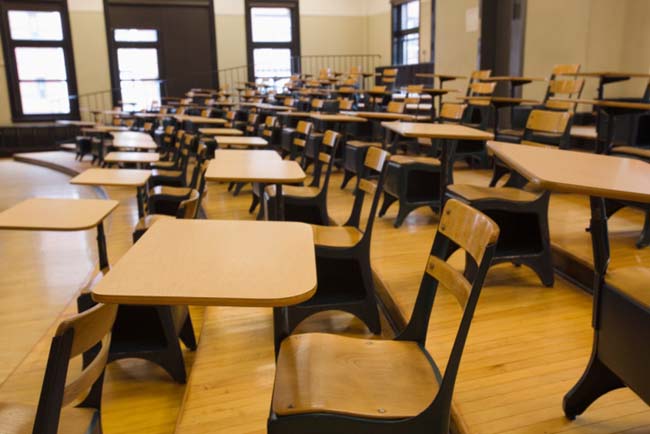
Michelle Benegas: Under the surface of America’s choppy waters, a current of brain drain?
My scholarship, teaching, and service center on issues related to immigration and education. I am an associate professor at Hamline University, where I prepare teachers of English as a Second Language (ESL). My home speaks Generation Z. My South American husband and I have three daughters, aged 16-19. Ruben left Argentina to pursue the American dream. Between us, we have three master’s degrees and a PhD. Our eldest daughters are pursuing careers in biomedical and mechanical engineering. Here is what I can tell you from my perch on this branch: Our children are planning to leave.
Brain drain (also known as human capital flight) is when highly skilled individuals emigrate from their home country during a time of national duress. Donald Trump has described an America that some of Generation Z does not want to live in. Following his 2016 election, Canadian universities referred to the surge of American applicants as the “Trump Bump.” My children are days away from their first opportunity to vote. If Trump wins, it may be their last. It was on a visit to Minnesota that he promised voters that if they elect him to office, they “won’t have to vote again.”
Brain drain is a societal phenomenon. It leaves a nation with fewer doctors, scientists and researchers. Countries that experience brain drain lack strong universities, cutting-edge medical treatments, and innovative city planning. These countries are sometimes forever labeled “developing” countries. In actuality, they are developed to benefit a select few. My children have spent their developing years watching Trump’s oligarchy fortify itself through a global pandemic.
Brain drain breaks families apart. It is the underbelly of the American Dream mostly unseen to those of us who call ourselves Americans. I can only imagine my mother-in-law’s experience when my young husband left Argentina in search of a new life in the United States. He was the first of five siblings who would emigrate from Argentina. In my early career as a high school ESL teacher, my newcomer students from countries like Mexico, Iraq and Thailand worked through their complex feelings in my classroom. Through journal entries, classroom conversations, and essay assignments, they shared their stories of relief and heartbreak.
My family has lived in Minnesota for so many generations that I would need to look at our family records to see when they first boarded a ship to come here. None of my immigrant ancestors were wealthy. They fled nations that didn’t look like the future they had envisioned for themselves. The roots they put down were fortified by a common ideology that they and I share hundreds of years later: We believe in democracy.
Brain drain is tugging at my daughter, Eva. She is all of the things you would hope for in a child. She is independent, innovative, and family-oriented. She has acclimated to the idea of relocating to Quebec, which ironically is where my paternal ancestors lived as loggers before migrating to Minnesota. She is learning the language that her grandfather heard in his home but never learned to speak. On a recent visit to Concordia University in Montreal, we toured the campus with a group of prospective American students. The tour guide assured them that they would have a pathway to citizenship upon graduation.
As my daughter awaits her Canadian student visa, I grieve for those generations before me who labored to make this place home. The generation most at risk for voting Donald Trump into office will not be around to watch their grandchildren leave. A migration of young Americans is underway, and I fear the current is going unnoticed.
Michelle Benegas, Ph.D., is an associate professor at Hamline University. A former high school teacher in St. Paul, she now prepares English language teachers to meet the needs of linguistically diverse students. Her books include “Teacher Leadership for School-Wide English Learning” (TESOL Press, 2020) and “Language of Identity, Language of Access” (LILA): “Liberatory Learning in Multilingual Classrooms” (Corwin, 2024).
Related Articles
B Kyle: The case for early childhood investment is compelling, but this St. Paul property tax isn’t the way
Real World Economics: Consider immigrants’ impacts on wages and jobs
Skywatch: Halloween heavens
Your Money: Charitable giving helps in at least two ways
Working Strategies: In praise of IDPs for personal, career growth


